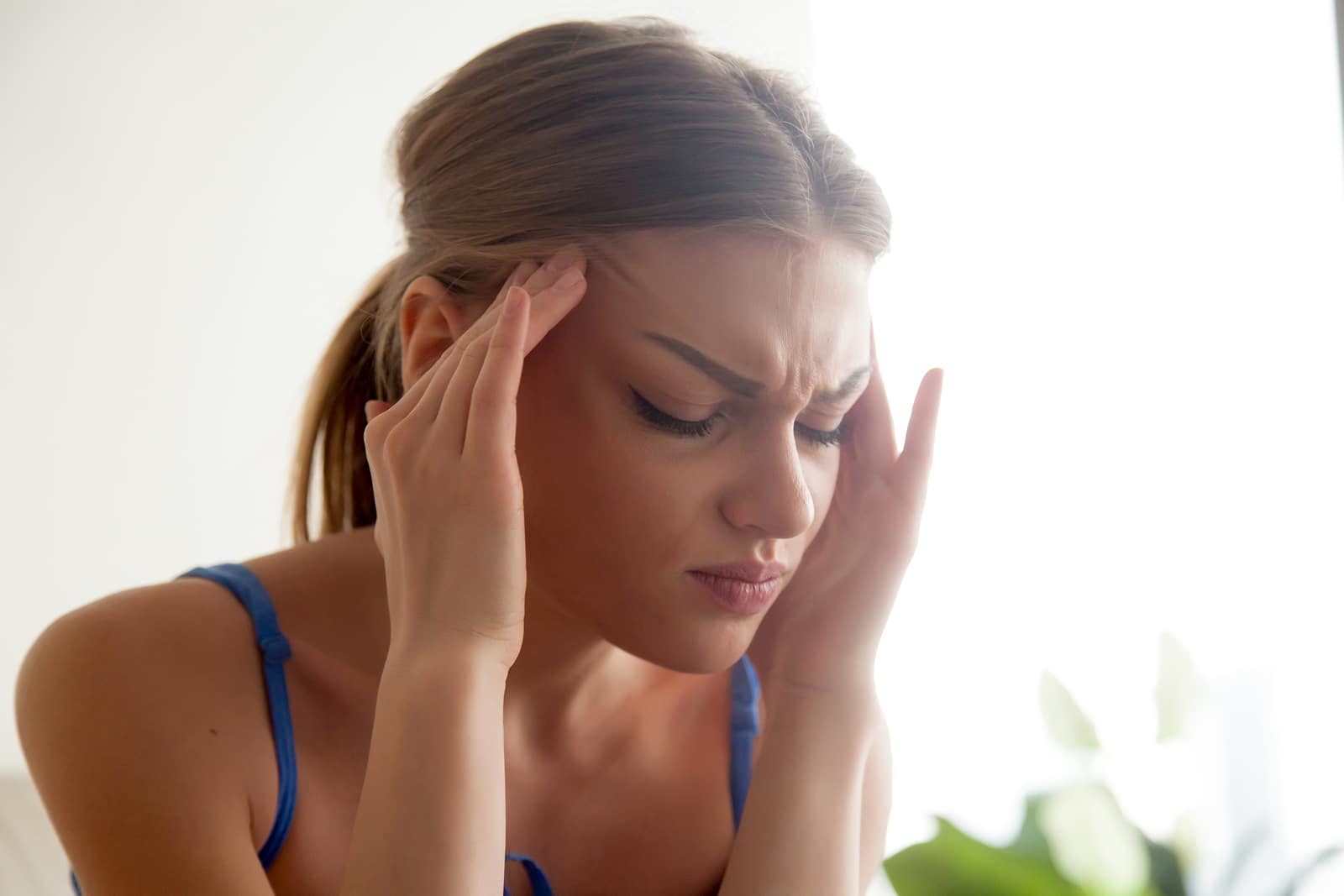Whether you workout on a daily basis or are a weekend warrior, or whether you run in the park or lift weights in the gym, it is not unusual to experience a headache after exercising. This may seem counterintuitive since physical exertion would actually seem to lessen muscle tension and increases blood flow to the brain. But many people experience throbbing, aching head pain after aerobic activity.
There are a few commonalities among those who suffer from headaches after working out. They include:
- Dehydration
- Low blood sugar levels
- Tight muscles
- High blood pressure
The Causes and Solutions
Exercise headaches can occur during or after any form of strenuous physical activity. The following information can help identify if your headaches are coming from your workout.
- Dehydration
It’s important to drink enough water before, during and after exercise to keep your body hydrated. Naturally, you sweat more than usual during a workout, so it’s important to rehydrate with extra water. Even if you are getting enough water during exercise, make sure you’re drinking at least one eight-ounce glass of water before you hit the gym, too.
For many people, it is also necessary to replenish electrolytes after exertion since these essentials chemicals can be easily lost when you sweat. You may have heard of the various hydrating drinks that contain electrolytes. Electrolytes are specific nutrients present in your body that have many important functions, from regulating your heartbeat to healthy muscle movement. When electrolyte levels become imbalanced, a range of symptoms may occur ranging from headaches and nausea to confusion and dehydration.
Get Back Your Normal Life Again
As pain specialists, we can guarantee that we are more than qualified in alleviating your pain and treating your condition.
- Blood Sugar Levels
Exercising on an empty stomach will often cause blood sugar to drop and a mild headache to increase. Consider eating a balanced snack with a little protein, fat, and carbs about an hour before you exercise. Peanut butter on a whole-grain rice cake or bagel is a good choice. Eating within 20 minutes of finishing your workout is also very important. There are a variety of healthy protein drinks on the market to choose from if you do not feel like consuming a small meal.
- Tight Muscles
If the muscles of your chest, neck, and shoulders are too tight during exertion activities, it is likely that you will suffer from a headache after a workout. Proper form and posture can keep muscles from getting too tense during exercise. It also helps to pay attention to how you sit and stand during your normal daily activities. Texting and sitting in front of a computer can contort your body’s alignment, putting extra stress on your back and neck muscles.
- Vascular and Blood Pressure
Some headaches after a workout may be classified as vascular in nature, similar to a migraine, and can be caused by changes in blood flow to the brain during exercise. Exercise dilates blood vessels, and this creates pressure that may be enough to lead to a headache in some individuals. An exertion headache may develop when strenuous exercise expands blood vessels in the brain over a prolonged period, leading to the pounding pain you feel afterward.
It’s important to keep your blood pressure in check, which means annual medical check-ups and talking to your doctor about anything unusual. A proper warm-up that eases your body into exercise, allowing your heart to adjust to intensity is useful in these instances.
Preventative Measures
There is no exact cause for all headaches or migraines. But experts say that they result from temporary changes in the chemicals, insulin levels, blood vessels and nerves in the brain. There is no doubt that exercise should be part of every person’s daily health routine. But headaches after exercise can put a real damper on workouts. Recognizing the triggers as well as preventing them, can get you back in the gym or on the trails, headache free.
The best treatment for headaches and migraines is to prevent them before they start. If exercise is one of your triggers, you don’t have to give up working out. Here are some tips to help you prevent or reduce exercise-induced migraines.
- Stay Hydrated. Water can be your best friend. Carry a water bottle with you while you exercise, and sip often.
- Watch the Weather. Exertion in hot, humid weather, or at high altitudes can cause headache-related symptoms.
- Eat Well. Low blood sugar is your enemy. Eating a piece of fruit or a snack before or during exercise can help prevent a sudden drop in blood sugar.
- Warm Up and Cool Down. The sudden onset or cessation of exercise can trigger a headache in some people. Take to stretch or slowly warm up and cool down before and after your session.
If your headaches continue or escalate, seek professional help so more dangerous health issues can be ruled out.
Get Help and Support
Arizona Pain and Spine Institute provides guidance to overall health, headaches, and offers specific migraine treatments. We provide relief by looking into your individual concerns, as well as other factors. We use a wide range of pain management solutions and treatment combinations. We have a team of specialists who can provide pain management solutions to your headaches with our innovative and cutting-edge technology and state-of-the-art facilities.
At Arizona Pain and Spine Institute, our professional, knowledgeable and experienced pain specialists provide safe and effective pain management and personalized treatment solutions. Our mission is to improve every patients’ quality of life by alleviating and managing their pain. Get started with today.
Call us now at (480) 986-7246 and make an appointment to begin your road to a pain-free life.

